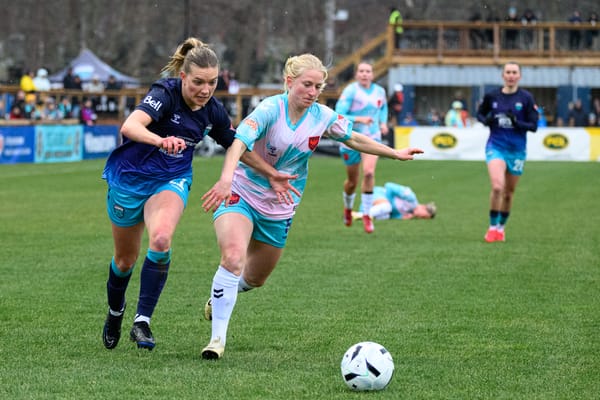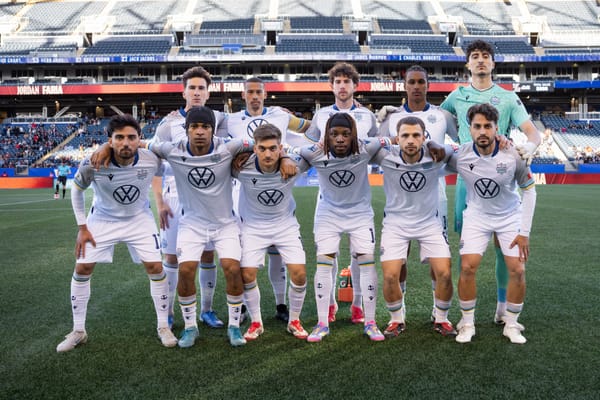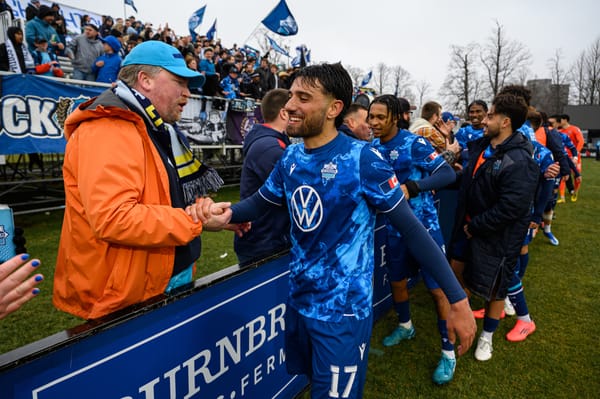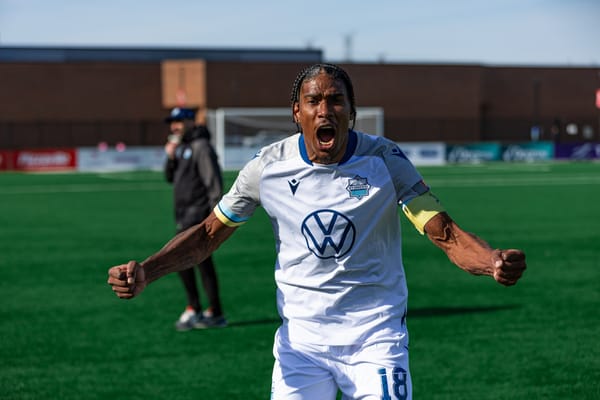Q&A with Isaac Raymond, Canada Soccer's referee department manager
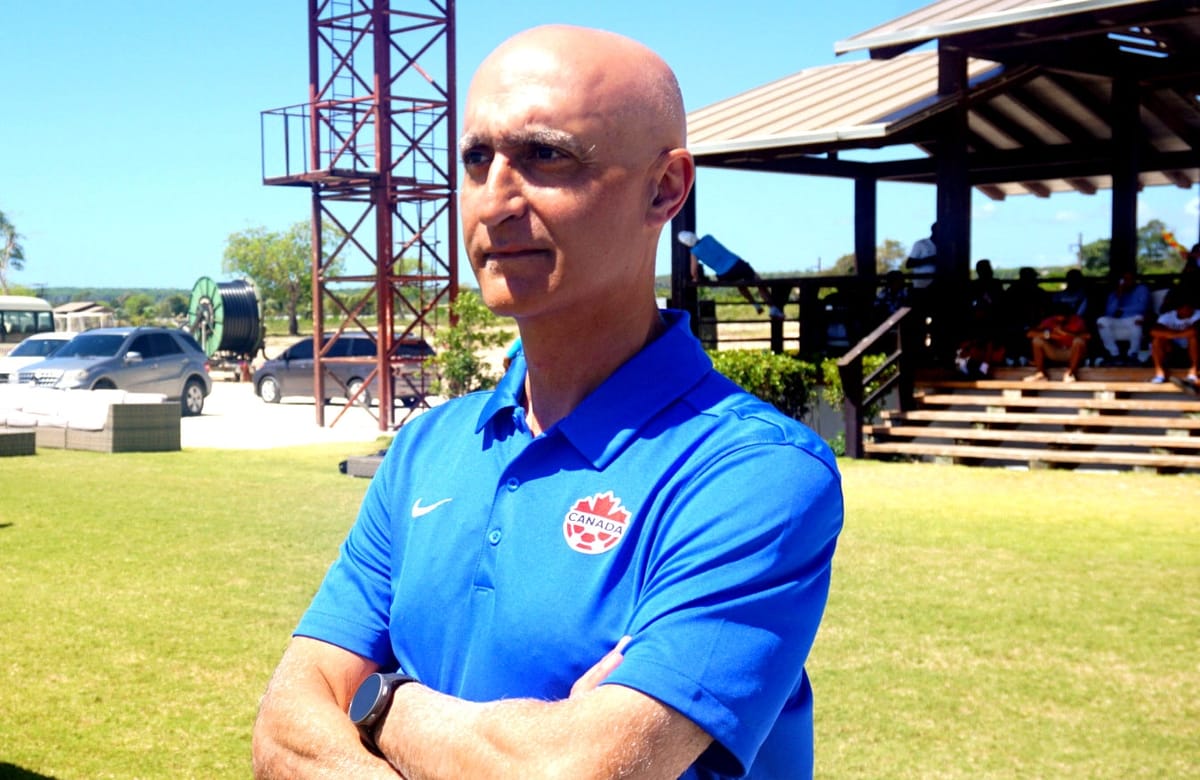
Officiating is a tricky subject in the CPL these days.
At the start of the season, it seemed like there was a call (or non-call) every week which roused the ire of coaches across the league. Make no mistake; this is part of their job, this jockeying for favourable calls because of previous slights.
But there was also some merit to their complaints.
The truth of the matter is the referees, who are managed by Canada Soccer and not the league, are growing into themselves. Like the players, a domestic league gives Canadian referees a chance to whet their teeth and build a career.
But unlike the players, when a referee makes an error, it can have huge ramifications on the outcome of the match. It's a bad look for a neutral party.
Josh Healey of the Wanderers Notebook had the opportunity to speak to Isaac Raymond, the man in charge of Canada Soccer's refereeing department. Instead of focusing in on individual calls, their discussion delves into the mechanics of the refereeing landscape, how refs are coached and the future of their role within the CPL.
JH: Firstly, I really appreciate you taking the time to meet with me today. I've got a wide assortment of questions about Canada Soccer and, I guess, how to climb the refereeing ladder and how that impacts the CPL.
IR: Sounds good.
JH: So let's talk about you to start. How long have you been in your current role with Canada Soccer and how did you end up in your position?
IR: Well, I'm the manager for the referee program for Canada Soccer and I've been in this position for almost eight years now. Prior to that, I assessed and instructed within the national (refereeing) program and even prior to that, worked as a referee in the national program. I was a referee for many, many years just like most referees in the grassroots and in my case, up to the national level. So here I am. My responsibilities go from the professional game to the grassroots game and coordinating our objectives with the provinces and territories.
JH: So that's a huge file.
IR: It keeps me busy.
JH: Just off the top, one of the things I'm really trying to dig into is the role of Canada Soccer in the CPL. Specifically, how do referees end up reffing CPL matches, how do they progress and get training and things like that. For the officials who had been assigned to the CPL, how do they get there?
IR: The referees in the CPL are all part of our national program and there's two parts to our program. There's the elite level, which is the national list and comprises our FIFA and national referees. And below that is our elite development group, which is our women's program and our next generation program. Now, that isn't to say women can't be part of our next gen program. The women's program was started primarily to prepare women for what may be the start of a women's professional league in Canada in a couple of years time. But the next gen program has been in existence now for about six years and its purpose is to provide training and development to referees so they can be ready to referee professional soccer.
JH: Is it safe to assume that the referees in the development groups are jumping directly from the grassroots programs?
IR: Everybody starts in the grassroots program. Similar to the pathway a player would take, those that show the most promise and most ability are the ones who climb the ladder and reach whatever level they can. In our case, we've got a pretty elite group of referees who get to the CPL level.
JH: Once they get to the CPL level, what kind of guidance and training does Canada Soccer provide to these referees who are working their way up?
IR: Within the national lists themselves, we have referees working at the international level, domestically and even in the MLS. The MLS referees rarely referee in the CPL, they are mostly tenured into the MLS game. But all of them have ongoing training and development within all of those areas, be it internationally or domestically. We employ coaches for specialists (assistant referees or referees), mental performance coaches, fitness coaches and they receive guidance through all of those tracks.
JH: So like any career, there's certifications and assistance that happens throughout. It's not just a matter of great, you've made it.
IR: Yup, they've got to re-qualify every year. There's ongoing training and development and of course, there's laws of the game exams and fitness tests that have to be completed before you re-join the list every year.
JH: Obviously, I'm looking at this through a CPL lens. There's a tenured track and a bunch of other avenues referees can take as they progress through their career. In the CPL, how do referees get assigned their work loads? I assume you're not just going to throw referees into the deep end right away. How do they work their way through assignments? What does that look like?
IR: I think you hit the nail on the head. You don't throw anybody right into the deep end. We've got lots of leagues across the country where these referees can show their development and their progress. They are evaluated on all of their games. Through that process, those candidates who show the greatest promise to referee at the CPL level get that opportunity. It's very much a meritocracy; you do well, you get more games.
JH: From Canada Soccer's point of view, you have your finger on the pulse of refereeing in the league. Do you provide feedback to referees in a hands on capacity? How do you provide feedback? Obviously, refereeing can be controversial and you hear most loudly from fans and they are biased by nature. How do you ensure they are getting the right criticism?
IR: Every CPL match is assessed. Firstly, it's assessed by an in stadium observer who is a qualified national assessor. They will receive a game day assessment and then a written report which scores their game and gives them feedback in that way. And as I said previously, they have coaches who give them general guidance beyond the assessment. So the assessments are specific to a match while the coaches provide general guidance throughout the season. Coupled with that is the mental performance and fitness coaches that give information and guidance and can support referees match to match. These coaches are very important to the well being of a referee in a travel heavy environment.
JH: That's very similar to the players. There's a level of load management. When I'm chatting with players, they always talk about how easy it is to underestimate the travel side flying from Vancouver to Halifax and then to Calgary, like the Wanderers did a few weeks ago. It's some 20,000 kilometres of travel in a very short span.
IR: It's an element that we can talk about while climbing the ladder but it's something you can't really train for. You've got to live it, you've got to learn it and then you've got to adapt your lifestyle to make sure you can do that travel and still perform at the highest level.
JH: Let's talk about the numbers. How many referees are associated with Canada Soccer at the national level?
IR: There's approximately 40 or so referees on the national list but as I said to you before, not all of them work in the CPL as they are engaged full-time in the MLS. There's about 30 plus in the next gen program and another 30 in the women's program. All in all, about 100 referees.
JH: Right but that includes all referees in the program, not all who would be eligible to work in the CPL.
IR: Correct. If I were to give you an exact number, it's probably between 50 and 60 referees who can officiate in the CPL at this time.
JH: There's 112 matches regular season matches. How much of an avenue has the CPL provided for referees to sharpen their teeth at their trade since its inception?
IR: Well, there has been professional soccer in Canada prior to the creation of the CPL. The CPL is fantastic because it's a Canadian brand with Canadian teams playing against Canadian teams. The CPL offers something a lot more predictable and in house, if you will.
JH: We always talk about the progression of players over the last five years of the CPL. Have you seen something similar with referees going through your programs?
IR: As I said to you before, we do have a history of professional leagues in Canada and have been developing our referees for many years now. That being said, we have been able to give referees a lot more experience prior to them joining the national list because the CPL is in Canada offering them a steady diet of games.
JH: Okay, now to get into the meat of it. Like any sport, there are calls that fans think referees got wrong. In fact, I think I saw you mention something on Twitter about a call in the CPL match between Halifax and Forge and that the referee called it correctly. Obviously, that's a very different view from Forge fans. Let's call it a contentious call from a fan perspective, even if by the rule book it was correct. Will observers and coaches review individual calls with referees post-match?
IR: Of course. Frankly, they'll review just about every call post-match whether it's immediately after the game and so on. But every key decision — and we call them key match incidences — are all reviewed. Sometimes, decisions sit in the grey area and I've got a panel of experts that I work with and we all sit around a table every Monday morning and talk about the decisions. Sometimes, we arm wrestle about them, not very differently from fans. Sometimes, there isn't a truly correct answer because the video doesn't give us a clear view or whether it's because the referee made a decision from a good position with a gut feeling, knowing something doesn't smell right. There's a number of different factors that go into it. Sometimes, it's just black and white. A referee's made a decision which is clearly the right decision or, occasionally, the wrong decision.
JH: It's really interesting you said that because, just like the game, it's fluid. It's not always black and white. It comes down to, much like players, a referee in that moment making a call with what they are able to see with their eyes. And they aren't going to be right 100 per cent of the time but you do your best.
IR: And that's the beauty of the game, I think. Unfortunately, referees are held to a different standard than players. Every game is filled with mistakes by players and probably by coaches, but it may not be as evident, and sometimes by myself and referees. That's the nature of being a human being and frankly, I think that's the beauty of the sport. That said, we put a lot of effort into making sure referees have all the tools at hand to either eliminate or at the very least, minimize making mistakes.
JH: It seems like you have a very rigorous review process. If it's getting up to your level for a call, there is oversight going on to improve the product.
IR: Very much so. It's important that referees know where we stand as a leadership panel on their decisions and on their career paths. Sometimes, we hum and haw over the smallest decisions because it might reflect a trend or pattern with the game itself and we want to be in step with it.
JH: Is it harder to be a referee in the CPL and to make decisions as you're not using VAR or a substitute? Is that a boon or detraction from being a referee?
IR: I don't think it's harder. If you consider that VAR wasn't here before and in Canada, isn't here now, it's just the same. Perhaps the spotlight is a bit brighter now with a domestic professional league and I think that certainly is the case. On the flip side, there's certainly a lot more support for referees today than when I was refereeing. They offset each other a little bit. I think it weighs in the positive from the referees standpoint in all honesty.
JH: As you said, the lights might be brighter with the FIFA World Cup coming to Canada in 2026. There's an opportunity to put Canada Soccer's programs in the spotlight. Again, let's get into a bit of detail. There have been several coaches this year, and fans of course, who have commented on the officiating. Will clubs seek you out to ask about particular plays or will you communicate with them following controversial decisions? I know Tommy Wheeldon Jr. from Cavalry has made a number of comments in the media. Will you guys take the initiative to discuss with him and others when things are murky?
IR: There's two parts to what you're asking. Firstly, the coaches have an open line to me and on occasion, we do talk. We have a pretty open dialogue and quite a cordial relationship, I like to think. And the second part that you should be aware of is the league, and therefore the teams, receive a report from me every week categorizing all of the key incidents and how we evaluated the decisions of the referees.
JH: So there is a lot of information being shared.
IR: The league and the teams will be in the know. Sometimes, we identify an incident the teams didn't even notice. Sometimes, it's a subtle off-side situation which leads to a goal, was it correct or was it not correct. Very often, there's situations where the teams haven't noticed it but we do. The point simply being is we report back every week on all those key incidents and let the league know how we feel about them. But that doesn't mean they agree.
JH: I'm sure that's very true. Sometimes, it goes their way and they don't say anything but other times, it doesn't and they let you know.
IR: Our job is to take a dispassionate view and not worry about partisan considerations.
JH: That makes sense. Is there anything else you'd like to add about refereeing and the CPL?
IR: No, I think you've touched on (most of it) but I will re-emphasize what I said prior to that. I think we've got a very good group of referees at the CPL level and Canada Soccer provides a pretty exhaustive amount of support to them to help maintain a high level and, in some cases, get to that level. In collaboration with the CPL and the support that 112 regular season games gives us in Canada, I think it bolds well for the future of the game.
JH: Fantastic. I really appreciate your time. Hopefully you've got some sun coming out your way because if you're coming to Halifax anytime soon, bring rainboots and a jacket.
IR: Thanks for the warning (laughing). Take care.
Editor's Note: This interview has been condensed and edited for clarity.
Cover Photo Credit: Alberta Soccer
